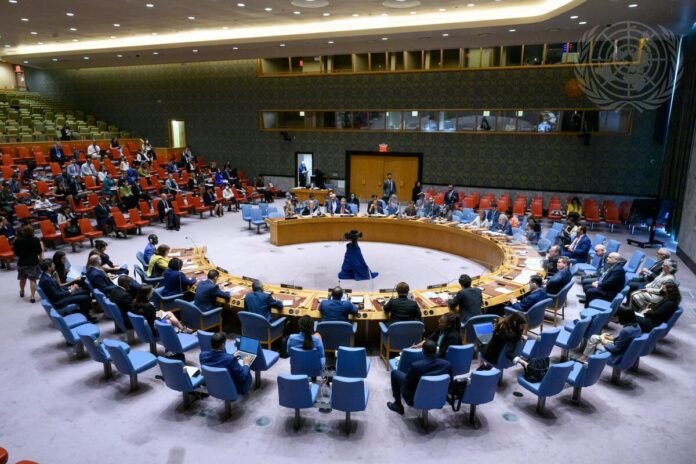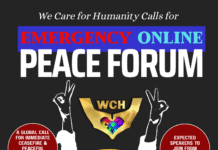Security Council Working Group on Children and Armed Conflict
In connection with the examination of the sixth report of the Secretary-General on children and armed conflict in the Philippines (document S/2022/569), the Security Council Working Group on Children and Armed Conflict agreed to address the following messages through a public statement by the Chair of the Working Group:
To All Parties to Armed Conflict in the Philippines
Parties addressed: The leadership of the Moro Islamic Liberation Front, the Bangsamoro Islamic Freedom Fighters, the New People’s Army, the Abu Sayyaf Group, the Moro National Liberation Front, the Dawlah Islamiyah-Maute Group, and the Government of the Philippines.
Welcoming the decrease in verified violations and abuses committed against children as reported by the country task force on monitoring and reporting, despite access restrictions impacting documentation and reporting. Expressing grave concern about the ongoing violations and abuses against children, including those affected by multiple violations. Urging all parties to immediately end and prevent violations such as the recruitment and use of children, killing and maiming, rape and other forms of sexual violence, abduction, attacks on schools and hospitals, and denial of humanitarian access. All parties must comply with their obligations under international law.
Calling upon all parties to further implement the previous conclusions of the Working Group on Children and Armed Conflict in the Philippines (documents S/AC.51/2008/10, S/AC.51/2010/5, S/AC.51/2014/1, S/AC.51/2017/4, S/AC.51/2020/9, and S/AC.51/2022/4).
Stressing the importance of considering the best interests of the child, and the specific needs and vulnerabilities of girls and boys, children with disabilities, and children from Indigenous communities when planning and taking actions in armed conflict situations. This includes taking all necessary preventive and mitigating actions to avoid and minimize harm and better protect children during hostilities and from the effects of explosive ordnance.
Highlighting the importance of accountability for all violations and abuses against children in armed conflict through implementing the Special Protection of Children in Situations of Armed Conflict Law (Republic Act 11188) of 2019. All perpetrators must be brought to justice without undue delay, and all victims provided with comprehensive, age-appropriate, gender-sensitive, disability-inclusive, non-discriminatory protection, and support services, including psychosocial and health services, access to education and vocational training, livelihood support, social reintegration, and specialized services for child survivors of sexual and gender-based violence.
Specific Concerns and Condemnations
Noting with concern that access constraints imposed upon the country task force by parties to some conflict-affected areas presented challenges to verifying the six grave violations against children. The information in the Secretary-General’s report on children and armed conflict in the Philippines (document S/2024/626) does not represent the full extent of violations against children.
Condemning the recruitment and use of children for combat and support roles, including as informants and for sexual purposes. Urging all parties, especially armed groups, to immediately and unconditionally release all children associated with them to civilian child protection actors and prevent the recruitment and use of children under 18 years of age, as set out in the Optional Protocol to the Convention on the Rights of the Child on the involvement of children in armed conflict.
Expressing deep concern about incidents of rape and other forms of sexual violence against children, notably girls, during the reporting period. These incidents continue to be underreported due to stigmatization, fear of reprisals, harmful social norms, lack of access to services, impunity, and safety concerns. Strongly urging all parties to take immediate and specific measures to end and prevent rape and other forms of sexual violence against children. Stressing the importance of accountability for those who commit sexual and gender-based violence against children and recognizing the Act Prohibiting the Practice of Child Marriage (Republic Act No. 11596) of 2021 and the Special Protection of Children in Situations of Armed Conflict Law (Republic Act No. 11188) of 2019 as important steps by the Government of the Philippines to address such acts. Emphasizing the need to ensure access to age-appropriate, gender-sensitive, inclusive, non-discriminatory, and comprehensive specialized services for survivors of conflict-related sexual violence.
Strongly condemning attacks on schools and hospitals in violation of international law, and attacks and threats against protected persons and the forced closure of schools. Indigenous communities were especially affected. Calling on all parties to comply with applicable international law, respect the civilian character of schools and hospitals, and end and prevent attacks or threats against these institutions and their personnel. Noting that armed conflict incidents near schools resulted in class suspensions and the harmful effects of attacks and military use of schools on the right to education. Calling on all parties to take concrete measures to avoid the military use of schools, ensure accountability and redress for attacks on education, and noting the Safe Schools Declaration.
Strongly condemning the abduction of children, which leads to other grave violations against children. Calling upon all concerned parties to cease abductions and immediately release all abducted children to relevant civilian child protection actors.
Encouraging the full implementation of the Annex on Normalization under the Comprehensive Agreement on the Bangsamoro, particularly the decommissioning and disbanding of private armed groups. Welcoming the completion of the 2017 UN-MILF Action Plan and the ongoing implementation of a follow-up program by the Bangsamoro regional government, providing psychosocial assistance and life skills training to children disengaged from the Moro Islamic Liberation Front (MILF).
To Community and Religious Leaders
Emphasizing the important role of community, religious, and Indigenous leaders in protecting children affected by armed conflict and advocating for an end to violations and abuses against children while fostering reconciliation efforts.
Encouraging these leaders to publicly condemn and advocate for ending and preventing violations and abuses against children. This includes recruitment and use of children, rape and other forms of sexual violence against children, killing and maiming, abductions, attacks and threats against schools and hospitals, and denial of humanitarian access. Engaging with the Government, the United Nations, and other stakeholders to support the reintegration of children affected by armed conflict into their communities and raising awareness to avoid stigmatization of these children.





